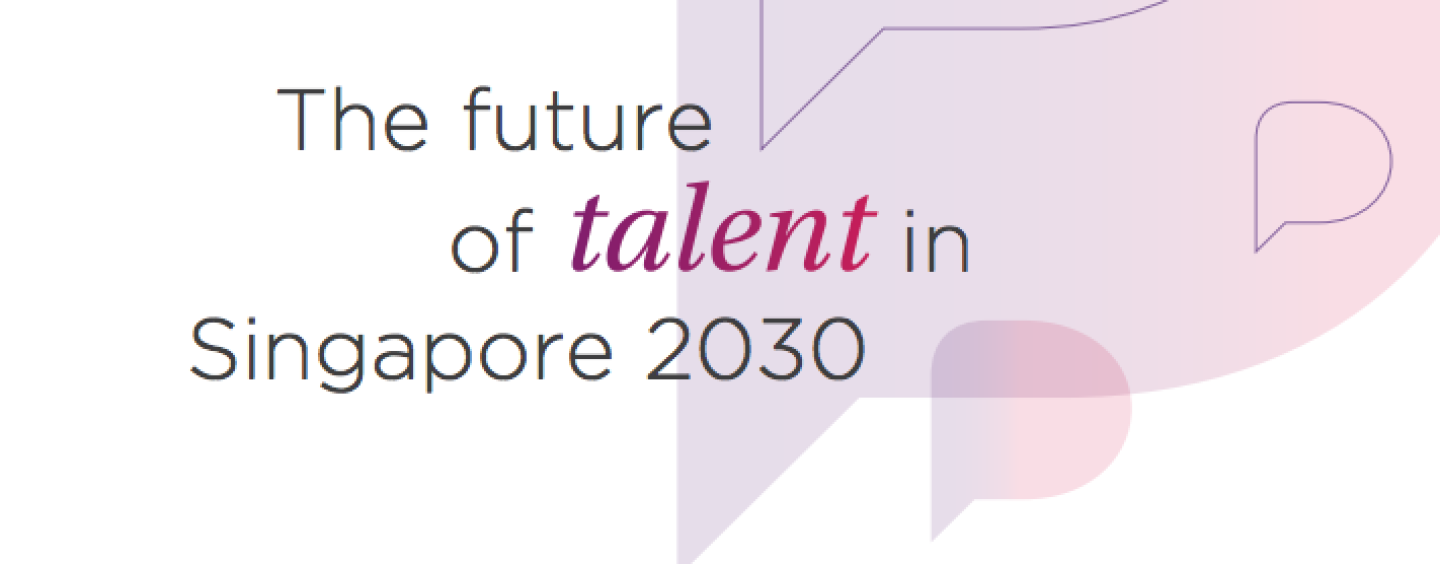New report challenges business leaders to think about where Singapore is heading and the talent they will need in the future. The report, “The Future of Talent in Singapore 2030” includes four thought-provoking scenarios of life in Singapore in 2030 with a range of challenges to the State, organizations and individuals, to help businesses think about their future strategy and the talent they will need.
Singapore Future 2030
Imagine a future where technology has transformed nearly every relationship, where borrowers don’t need banks and traditional media has been replaced by networks of individuals creating and sharing their own content.
Or imagine a Singapore facing unprecedented threats to its security, where separatists in the region engage in guerrilla warfare and where widespread economic crises has created flows of refugees pushing across failing national borders.
These are just some of the futures Singapore could face in the year 2030, according to a new research report by the CIPD, the professional body for HR and people development, and the Human Capital Leadership Institute (HCLI).
Four Visions of Singapore future 2030
‘Steady as she goes’ – a recognizable projection of the present. The PAP continues in power. Singapore enjoys full-employment and business continues to rely on foreign employees. The workforce expect their employer to provide increasingly better work conditions, and academic qualifications are still seen as an indicator of an individual’s talent.
‘No one is an island’ – where technology has removed the middle person and old business models are making way for new ones. Singapore has a growing number of thriving start-up companies and some individuals seek to be entrepreneurs instead of pursuing safe and secure employment. While there are winners in this new economy, many with traditional skills are falling through the cracks.
‘Fortress Singapore’ – where life in Singapore is driven by external, technological and financial security threats. The failure of governance is widespread in Southeast Asia and corruption is the norm in many parts of the region. As states border on failing, Singapore is steadfast in refusing entry to irregular migrants and refugees. The best talent is mobilised in response to these threats as the government commits huge resources to defence, surveillance, domestic intelligence and equipping Singapore’s internal security forces.
‘Bless thy neighbor’ – after a period of environmental disasters and food shortages, Singapore is invited by its neighbors to lead the regional recovery. Singapore has emerged as a stable and prosperous nation with its most talented citizens working comfortably across borders, cultures and organizations in order to lead a transformation in ASEAN.
Talent in Singapore future 2030
Dr Wilson Wong, Head of Insight and Futures at CIPD said the report challenges leaders to think about Singapore’s future and the type of talent they will need to survive and thrive over the long term.
“These scenarios are not predictions but they do set out possible ways Singapore may develop into the future, based on choices made today.”
“The talents needed for Singapore to succeed in the future may be very different from those required in the past and even today. One theme that is consistent across all scenarios is that old jobs will be destroyed or redefined and new ones will emerge, forcing individuals to seek out opportunities for their skills, and in many cases to reskill.”
“People looking to hire talent for their organizations need to look beyond academic qualifications. They need to identify individuals who have the will and the ability to evolve and adapt to changing circumstances.”
“Whatever the future brings, the compact between state and citizen has to evolve with implications for the role of organizations and the nature of Singapore society. There will be discussions about the social safety net and the setting of a minimum wage if income inequality persists and hourly wages stagnate,” Dr Wong said.
Ms Wong Su-Yen, CEO of HCLI said the four scenarios show the importance of remaining open and inclusive as circumstances change and challenges emerge.
“In a worst-case scenario future we may be gripped by fear and put up walls against outsiders. This will only stifle our ability to innovate.”
“The four scenarios confirm the need for individuals to constantly cultivate their learning agility, adaptability and resilience if they are to do well in a time when some jobs are being made obsolete and replaced by new professions,” Ms Wong said.
According to Dr Wong, Singapore businesses and organizations can take steps now to build their capability for the potential challenges outlined in the report. These steps include:
- Building resilience into national and organizational strategies by scanning the horizon for obstacles and risks so that dangers and opportunities can be met with agility and confidence.
- Taking a longer-term view so that future opportunities are not inadvertently shut off because you are only addressing the challenges of the present given the strategic futures capability in Singapore.
- Consciously increasing the range and diversity in your workforce and actively supporting alternate voices and ways of thinking. This builds resilience when facing unanticipated challenges.
- Supporting and encouraging employees to not fear risk but to understand and appreciate the opportunities these challenges bring.
- Developing their ability to understand and manoeuvre within complex systems, recognizing where and when to intervene so as to achieve a positive, sustainable outcome. And when all fails, to learn and develop fresh approaches without the stigma of failure.
- Accepting that the compact between the state, organizations and their employees are subject to constant change and that all have a role to play in shaping a brighter future for themselves, the society, the country and the region.
CIPD’s report, Future of talent in Singapore 2030, also explores experts and leaders’ perceptions of what talent in Singapore is. The report is attached.








